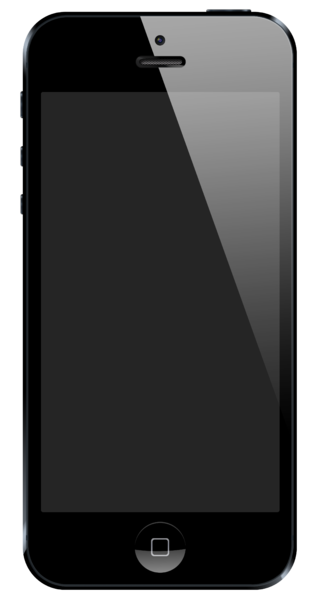It’s finally here. The phone you have been waiting for, Apple’s “most revolutionary product” ever: the iPhone 5. While thousands of people around the world stood in outrageous lines outside Apple stores, I wondered to myself if this phone is all it’s hyped up to be?
Although Apple advertises the iPhone 5 as a life-changing device that everybody needs, its only difference from the iPhone 4 is the .37 inch increase in length, a slightly faster A6 processor compared to the previous iPhone 4’s A5 processor, and the worst mobile GPS system ever created. The scariest part is that a difference of a nano-second is enough to make millions of people spend $700 more on a cell phone. At the same time you can get an iPhone 4 for free with a 2-year contract with AT&T. “I have used both the iPhone 4 and the iPhone 5, and I personally have no preference. It is shocking to me that the iPhone 5 is so much more expensive,” said sophomore Jacob Swartz.
Swartz has tested the iPhone 5 for himself, but Apple’s manipulative marketing tricks didn’t fool him. The same can’t be said for his mother. “My mom knows nothing about iPhones, but after she watched an iPhone 5 commercial she went out and spent $699 on one. I tried to tell her that she could get the iPhone 4 for free but she wanted the new one,” Swartz said.
This reveals an increasing problem with our society today. If people see a new product on TV or on a computer, they are much more willing to pay double what they would pay for last month’s product.
Many adults like Swartz’s mom tend to buy a new product like the iPhone 5 because they think it’s better quality, whereas many younger people just want to be cool and trendy.
Studies by the Association for Consumer Research confirm that most people think that if they don’t buy the newest version of a product, they might as well not buy anything. “Consumers overreact to the possibility of future purchase failure if they do not buy the new feature. The extra money spent on the additional feature is a sure loss consumers generally want to avoid,” said Albert Wenben Lai of University of Wisconsin (in a study for the Association for Consumer Research).
Lai brings up an interesting note about expensive additional features. Next time you have to buy a phone, or any product for that matter, you should ask yourself before you purchase, what will these new features really do for me? So, is the iPhone 5 really revolutionary? It would be a stretch to fit the iPhone 5 into that category. Can you as a consumer stop getting tricked by major corporations? Number one: don’t fall for Apple’s inspiring advertisements, it’s not worth your money. Number two: buy a phone because of its functionality, not because of its trendiness.


